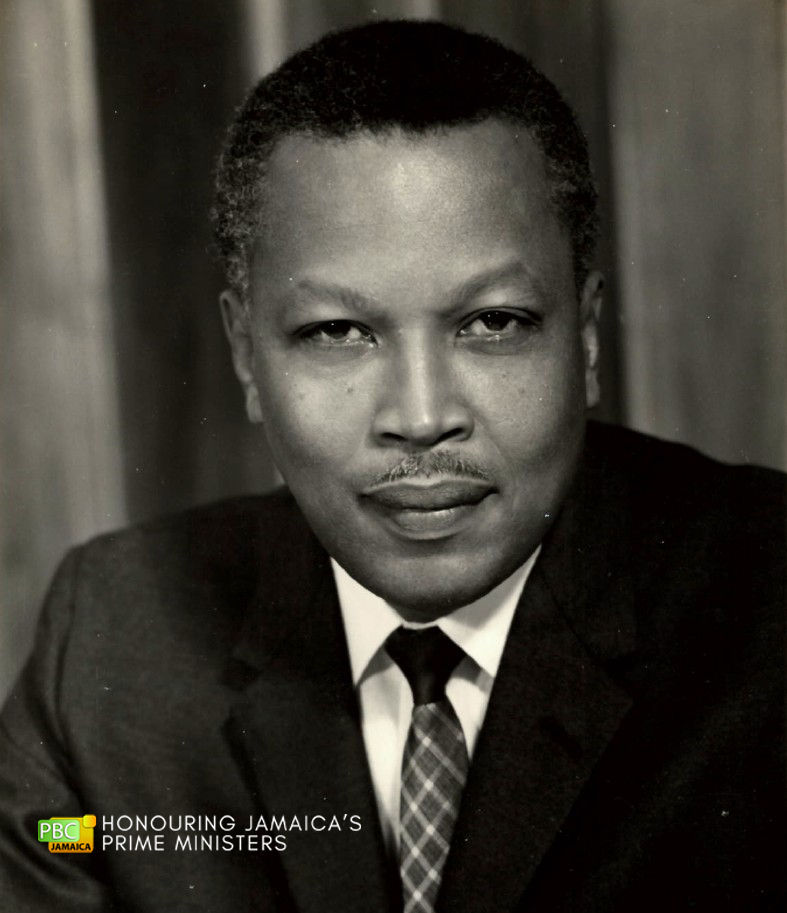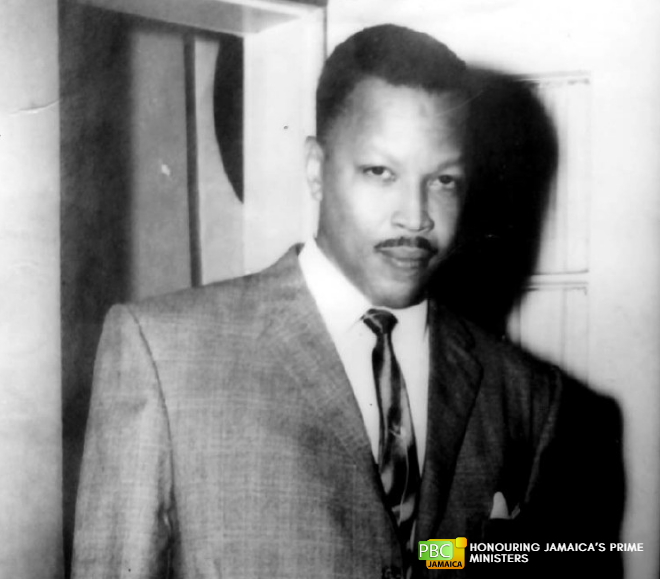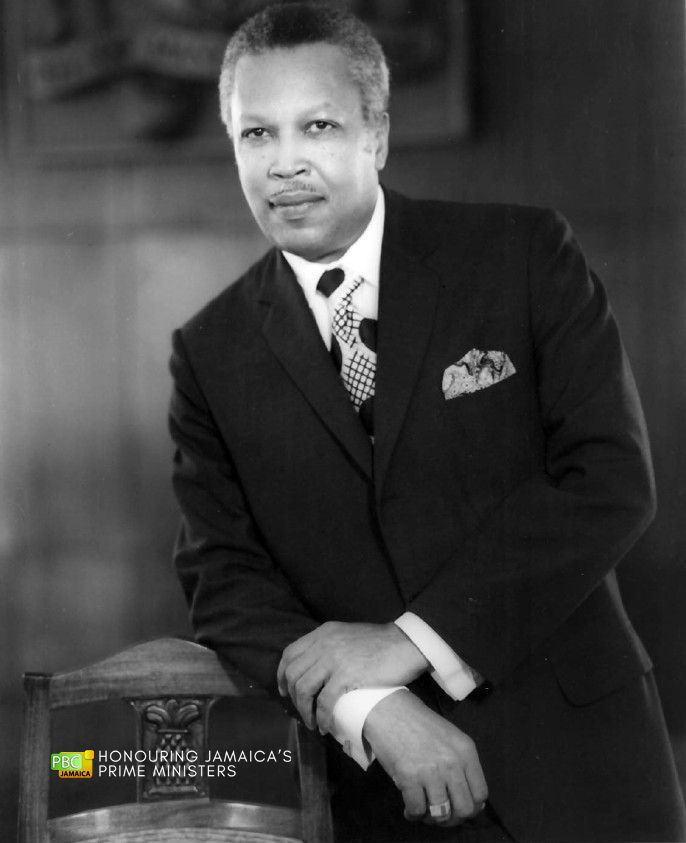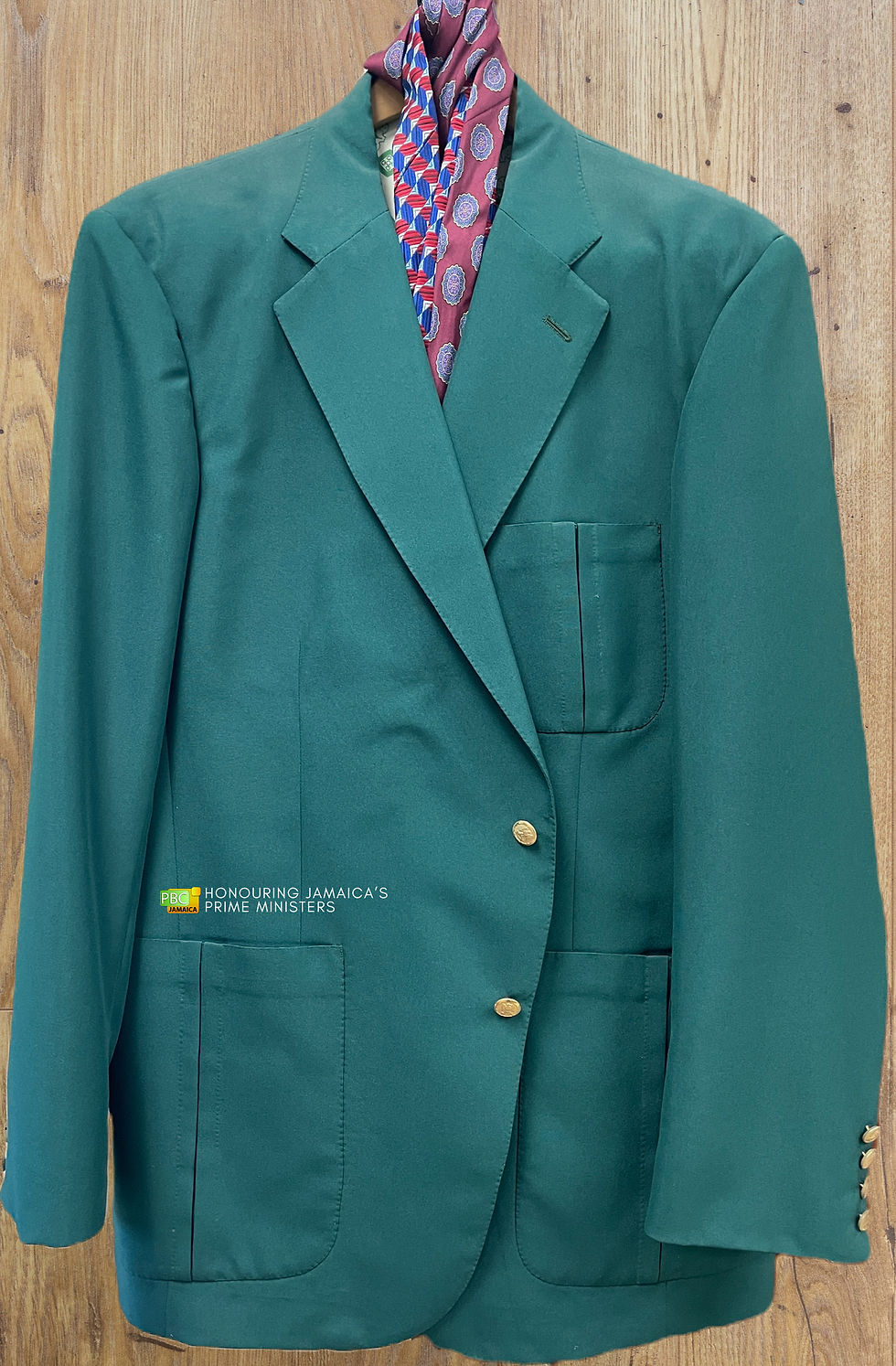The Most Honourable Hugh Lawson Shearer ON, OJ, PC
- tcollins66
- Jul 29
- 5 min read
Updated: Aug 12
1967 - 1972
The Most Honourable Hugh Lawson Shearer was born on the 18th of May 1923 in Martha Brae, a village in Falmouth, Trelawny. His parents were James Shearer, a World War One ex-serviceman, and Esther Lindo, a dressmaker. He attended Falmouth Primary School.

Thereafter, he was awarded a parish scholarship to attend St. Simon’s College, from which he graduated in 1940. Mr. Shearer was interested in journalism and was granted the opportunity in April 1941 to become a trainee journalist on the 'Jamaica Worker', a weekly newspaper of the Bustamante Industrial Trade Union (BITU) at the time. He received his first promotion in 1943, when Sir Alexander Bustamante became the presiding editor of the paper and took him under his wings.
Early Career and Rise to Political Leadership
Mr. Shearer began his apprenticeship as a trade unionist while still an editor of the BITU’s weekly paper. Along with Bustamante and other union officers, he participated in union organisation and negotiations with employers in some notable labour disputes. Mr. Shearer first experienced 'party politics' when he campaigned for Bustamante in the Kingston Western Constituency during the 1944 elections. The Jamaica Labour Party (JLP) won the election that year, and Mr. Shearer continued with his work at the BITU.
In 1947, Mr. Shearer was appointed Assistant General Secretary of the Bustamante Industrial Trade Union and won the Central St. Andrew seat on the KSA Corporation Council that same year. While at the union, Mr. Shearer attended a Colonial Development and Welfare Trade Union Scholarship course in Barbados, thus expanding his knowledge on the matters for which he was responsible. Additionally, the BITU under Mr. Shearer’s leadership in 1961 supported the JLP's victorious campaign for Jamaica to seek independence, rather than joining the West Indies Federation.

Mr. Shearer had a distinguished career as a trade unionist and was especially well-versed in negotiation. He began sitting beside Bustamante in all important negotiations, and became increasingly recognised as a key figure. Over the years, his skills and activities in this regard led him to interact with diverse groups and communities, including workers, civil servants, employers, traders and associations. This broadened his understanding of the social and economic conditions in fields that were fundamental to Jamaican life.
In the election that succeeded this period, Mr. Shearer was appointed to the Legislative Council. Following the replacement of the Legislative Council by the Senate, he was appointed the Leader of Government Business and a Minister without Portfolio. Mr. Shearer was involved in crucial international issues, as he was also appointed Deputy Chief of Mission for Jamaica at the United Nations General Assembly.
Like his forerunners, Mr. Shearer attended the Commonwealth Prime Ministers’ Conference as a member of the Jamaican delegation in September 1966. The following year, he won his bid for the Clarendon seat previously held by Sir Alexander Bustamante before retiring from active politics. He was also appointed as Minister of External Affairs in February of that year.

Social and Economic Contributions to Jamaica
Mr. Shearer was later sworn in as Jamaica’s third Prime Minister after Sir. Donald Sangster’s passing in April 1967. It has been said that he presided over Jamaica’s most productive years during his tenure as Prime Minister, from 1967 to 1972.
Foreign Exchange & Infrastructural Development: During this period, three new alumina refineries and three large convention hotels were constructed, which became two of the country's largest foreign exchange earners. These developments laid the foundation of the country's mining and tourism industries. Mr. Shearer also established plans for bypass routes to reduce traffic congestion in major towns, the first of them being the Kingston to Spanish Town Highway.
Improved Education Systems and Accessibility: Mr. Shearer has been praised for his early contributions to Jamaica’s education system. His programme to double secondary school enrolment resulted in the building of fifty secondary schools, which is said to have changed the pace of education in Jamaica. He was further able to make distinct improvements to the existing systems, courtesy of the Canadian International Development Agency (CIDA). This was done under his New Deal Education Programme, which was designed to provide a sound education for every child in Jamaica; thus creating room for the possibilities of having a fully educated population to become a reality.
Significant GDP Growth: Based on the rapid growth of agriculture, mining and tourism industries during his tenure, Jamaica achieved its highest Gross Domestic Product (GDP) per capita, at a figure of US$2,300.

Human Rights: In 1963, Mr. Shearer gained international recognition for Human Rights when he initiated the movement in the United Nations for 1968 to be globally declared as 'The International Year of Human Rights'.
Caribbean Banana Industry: Through his exceptional negotiation skills, Hugh Shearer secured concessions for a managed Caribbean banana market during a Commonwealth Conference in Zambia. This accomplishment later prompted British Prime Minister Edward Heath to pay tribute to Prime Minister Shearer’s statesmanship. Thereafter, the banana industry became a lifeline for the Caribbean, but was later replaced in 2000 after a major international trade dispute.
Trade Union Research: Mr. Shearer was also a leader in the discussions and negotiations that led to the establishment of the Joint Trade Union Research Institute in 1980, the first of its kind in the Caribbean.
Other Noteworthy Achievements and Contributions
Prime Minister Hugh Shearer served Jamaica for over 50 years. He continued to make significant contributions to his homeland and was steadfast in achieving national development. On January 6, 1969, he was appointed to the Privy Council of England by Her Majesty Queen Elizabeth II.

In 1977, he became the president of the Bustamante Industrial Trade Union, and in the following years, he built it into one of the largest in the English-speaking Caribbean. Two national honours were also conferred on Mr. Shearer during his lifetime. Specifically, the Order of Jamaica on May 23, 1990, and the Order of the Nation on October 21, 2002. He was also awarded the Doctor of Laws, honoris causa, by Howard University in 1968 and the University of the West Indies (UWI) in 1994.
Following the victory of the Jamaica Labour Party in the general elections on November 9, 1980, Mr. Shearer was appointed as Deputy Prime Minister and Minister of Foreign Affairs. He served in these roles until the People's National Party (PNP) won the general elections in 1989. He continued as a Member of Parliament for the Southern Clarendon constituency until he lost the seat in the 1993 general elections. Subsequently, he retired from active politics and passed away a few years later on July 5, 2004. Mr. Shearer is survived by his wife, Dr. Denise Eldemire Shearer; sons, Howard and Lance; and daughters, Hope, Hillary and Heather.

